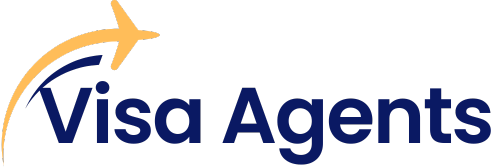Both F1 and J1 visas allow Indian students to study in the United States, but they serve different purposes and have distinct requirements. Understanding these differences is crucial for choosing the right visa for your educational goals and future plans.
Purpose and Eligibility
F1 Visa
The F1 visa is designed for full-time academic students pursuing degree programs at U.S. universities, colleges, high schools, or language training institutions. This is the most common visa for Indian students planning long-term academic studies in the United States.
J1 Visa
The J1 visa is for exchange visitors participating in government-approved cultural exchange programs. This includes students in exchange programs like Fulbright, research scholars, interns, and participants in sponsored educational exchanges.
Key Differences Comparison
| Aspect | F1 Visa | J1 Visa |
|---|---|---|
| Funding Requirements | Any source acceptable – personal, family, scholarships, or institutional funding | Over 51% must come from external sources – government grants, scholarships, or sponsoring organizations |
| SEVIS Fee | $350 | $220 |
| Grace Period | 60 days after program completion | 30 days after program completion |
| Work Authorization | On-campus: 20 hours/week during studies, full-time during breaks | Employment only if directly related to exchange program |
| Post-Graduation Work | OPT: 12 months (24 months extension for STEM) | Academic Training: Up to 18 months (equal to study duration) |
| Health Insurance | Not federally required (university may require) | Mandatory for entire duration of stay |
Spouse and Family Considerations
F1 Visa (F2 Dependents)
- F2 spouses cannot work under any circumstances
- Can study part-time only; full-time study requires status change
- Children can attend elementary/secondary school full-time
J1 Visa (J2 Dependents)
- J2 spouses can apply for work authorization (not guaranteed)
- Can study full-time or part-time without restrictions
- Work income can support family’s recreational and cultural activities
Critical Post-Graduation Restrictions
Two-Year Home Residency Requirement (J1 Only)
Many J1 visa holders are subject to a mandatory two-year home country residence requirement. This means you must return to your home country for at least two years before being eligible for:
- H-1B work visa
- L visa (intracompany transferee)
- U.S. permanent residency
- Change of status within the U.S.
You are subject to this requirement if:
- Your program was funded by Indian or U.S. government
- Your field of study is on the U.S. Skills List as being in short supply in India
- You received graduate medical training under ECFMG sponsorship
F1 Visa Advantages
- No mandatory return requirement
- Can apply for status changes within the U.S.
- Easier path to H-1B and permanent residency
Employment and Training Opportunities
F1 Visa Employment Options
- During Studies: On-campus work up to 20 hours/week
- CPT (Curricular Practical Training): Off-campus internships related to major
- OPT (Optional Practical Training): 12 months post-graduation work authorization
- STEM OPT Extension: Additional 24 months for STEM graduates
J1 Visa Employment Options
- Academic Training: Maximum 18 months or length of study program, whichever is shorter
- PhD students: May receive up to 36 months of Academic Training
- Job offer required: Must secure employment within 30 days of graduation
Financial Considerations
Funding Flexibility
F1 visa offers complete flexibility in funding sources – you can use personal savings, family support, education loans, or any combination.
J1 visa requires substantial external funding (over 51%), making it suitable primarily for scholarship recipients or government-sponsored students.
Application Costs
Both visas require similar application fees, but J1 has a lower SEVIS fee ($220 vs $350).
Which Visa is Right for You?
Choose F1 if you:
- Are self-funding or have flexible funding sources
- Plan long-term career prospects in the U.S.
- Want maximum post-graduation work flexibility
- Prefer fewer restrictions on future visa applications
Choose J1 if you:
- Have substantial scholarship or government funding
- Are participating in a specific exchange program
- Plan to return to India after studies
- Have a spouse who needs work authorization
Important Considerations for Indian Students
Given India’s position as a major source of international students, most Indian students find F1 visa more suitable for degree programs due to funding flexibility and post-graduation opportunities. However, J1 can be beneficial for those with Fulbright scholarships, government sponsorships, or specific exchange programs.
The choice between F1 and J1 visa significantly impacts your ability to work in the U.S. after graduation and your path to permanent residency. Consider your long-term career goals, funding sources, and family situation when making this decision.
At Visa Agents in Chennai, we provide comprehensive passport and visa assistance from start to finish. Our fast, dedicated, 24×7 services are backed by trusted and experienced professionals who ensure your documentation process is seamless and hassle-free.

Leave a Reply